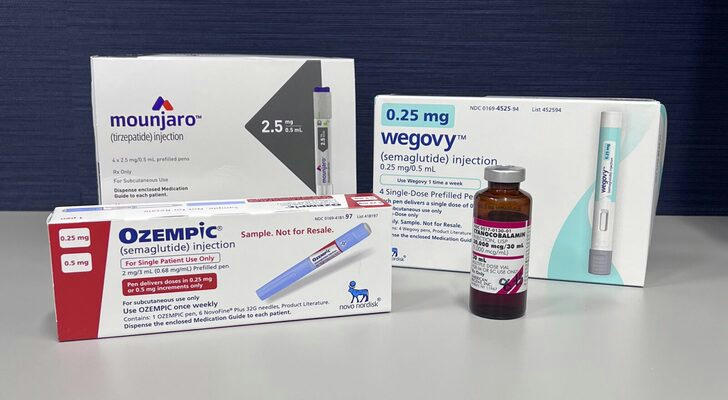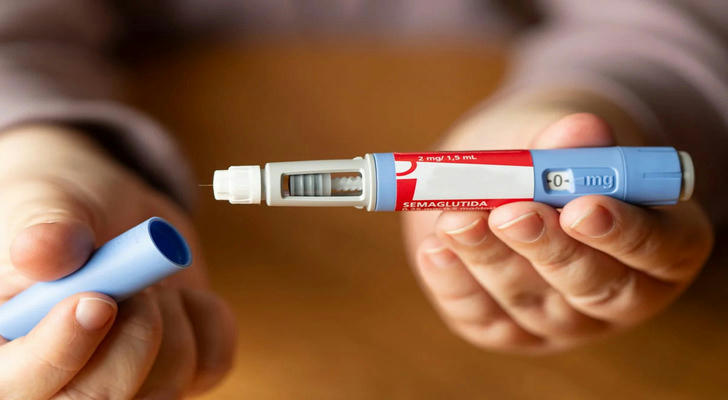The British government has included GLP-1 weight loss drugs in NHS public treatment, with more than 20,000 people participating and achieving significant results
NHS could offer weight-loss jabs at pharmacies ‘for £9.90 prescription price’
Against the backdrop of rising obesity rates, the government is launching an unprecedented healthcare support policy with record-breaking commitment: incorporating highly effective GLP-1 weight loss medications into the National Health Service (NHS). These drugs are not only made available to people with severe obesity but also aim to systematically tackle the public health crisis.The UK’s National Institute for Health and Care Excellence (NICE) estimates that 3.4 million people could benefit from weight-loss injections.

✅ This Time, the Government Is Directly Providing the “Miracle Weight Loss Drugs”
GLP-1 receptor agonists, such as Wegovy, Ozempic, and Mounjaro, have been dubbed the “secret weapon of Hollywood stars” due to their remarkable weight loss effects. Previously, these drugs were mainly prescribed for diabetes patients and were prohibitively expensive for most. Now, the UK government has officially included them in an NHS pilot programme, offering low-cost access to eligible obese patients.
Key points of the policy include:
A £40 million, two-year nationwide pilot project funded by the government, aiming to provide drug support and complementary interventions through the NHS to approximately 220,000 patients with severe obesity. No need to worry about high costs, as the majority of the expenses will be covered by the national healthcare budget.
Personalized plans combining diet, exercise, and psychological support to maximise effectiveness.
This means a treatment that previously cost patients around £250–£300 per month could now be largely funded by the state, reducing their out-of-pocket expenses to £249–£299.
🌍 Beyond the Pilot, the Government Is Expanding Coverage
According to NHS data, over 20,000 people have already joined the pilot, with average weight loss ranging from 9% to 12%. Patients have seen an average weight reduction of more than 10% within 3 to 6 months, alongside significant improvements in blood sugar levels, blood pressure, and mental wellbeing. With positive results confirmed, the government plans to roll out this policy to more cities and integrate it into long-term budget planning as a standard national treatment pathway.
Moreover, the National Institute for Health and Care Excellence (NICE) is further relaxing eligibility criteria, broadening the population that can benefit.
👥 Who Can Benefit? You Might Be One of Them
You could be eligible if you meet any of the following criteria:
A BMI of 35 or higher with a history of diabetes, hypertension, or metabolic syndrome;
A BMI of 30 or higher with associated mental health issues or mobility problems;
Residency in an NHS pilot region (such as parts of London, Manchester, Liverpool);
A doctor’s assessment that lifestyle changes alone have not been effective for weight loss.
Additionally, some pharmacies and GPs have already opened appointment bookings, and an online application system is expected to launch soon.
The programme is available across multiple regions, primarily through:
GP prescriptions: In some areas, GPs are authorised to prescribe weight loss medications to eligible patients.
Community pharmacy dispensing and delivery services: Certain community pharmacies participate in the pilot, providing medications and delivering them to patients’ homes.
Digital services: Some regions offer online platforms where patients can receive consultations and access medications digitally.
Voices from Patients and Experts
Patient Story: Michael’s Weight Loss Journey
Michael, 45, with a BMI over 37 and a long history of hypertension and type 2 diabetes, had tried numerous diets and exercise plans without significant success. Last year, he started treatment through the NHS GLP-1 drug pilot.
“At first, I was worried about side effects, but the doctor patiently explained everything. After three months, I lost nearly 12kg, my blood sugar levels improved noticeably, and I felt much better overall. Most importantly, I no longer felt I was fighting this battle alone,” Michael shared.
His story highlights the tangible changes and hope this policy brings to patients.
Expert Opinion: A Breakthrough in Obesity Treatment
Dr Lisa Harris, a renowned UK endocrinologist, stated,
“The introduction of GLP-1 receptor agonists is a major breakthrough in obesity treatment. These drugs not only help patients lose weight effectively but also improve related metabolic markers such as blood sugar and blood pressure. Integrating them into the NHS will help many more patients and alleviate pressure on public healthcare.”
Dr Harris emphasised,
“However, medication is only one part of the treatment. Combining drugs with diet, exercise, and psychological support is essential for sustainable, healthy weight loss. The government’s comprehensive pilot aligns perfectly with modern, evidence-based obesity management.”

